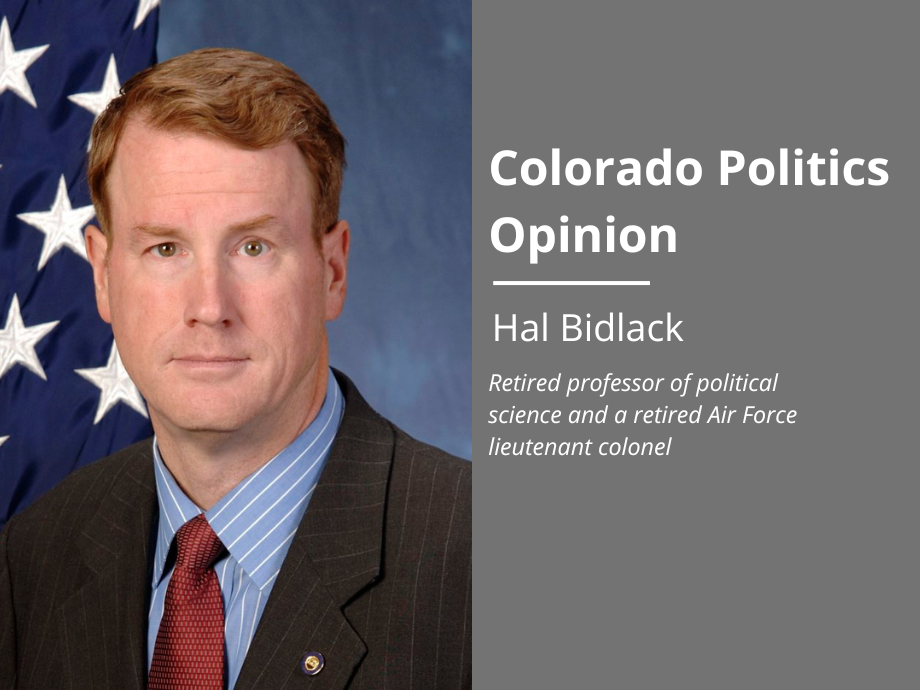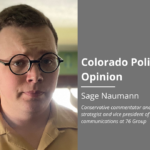Oaths of office and the Trump Colorado ballot-access case | BIDLACK


Back in the 1990s, when I was teaching political science at the U.S. Air Force Academy, I was promoted to lieutenant colonel on the same day as another instructor. Now, if you’ve ever been to a military promotion ceremony, you will recall there are parts of the ceremony that are traditional, such as having your new rank pinned onto your shoulders in the case of officers, and sleeves for enlisted personnel, by someone important to you. It’s usually a spouse or a parent. Sometimes the task is split, with a spouse doing one side while another person does the other. In my case, my late first wife pinned the silver oak leaves on one side, and the general for whom I’d been his executive officer pinned the other.
The usual next step is the re-taking of the oath to the U.S. Constitution. But the other fellow and I who were getting promoted didn’t like that idea. We both felt firmly when we first took the oath, when we were sworn in as second lieutenants way back in 1980, that we earnestly and proudly meant it then and it was still in effect. This may seem an odd fight to have to civilians, but perhaps my fellow military readers will understand. We told our department head, a great and kind leader, about our views, and he understood, and on that promotion day, we had our ranks pinned on, then a few brief remarks from the boss and the general, then cake – no “redo” of the oath took place.
I thought about this oath taking, and the sacred and powerful meaning of taking such an oath, when I was reading the Colorado Politics story about the state Supreme Court trying to work through the case before them that could ban former President Donald Trump from the Colorado ballot, due to his participation in the insurrection.
Stay up to speed: Sign-up for daily opinion in your inbox Monday-Friday
It is a fascinating legal question about a provision in the 14th Amendment, one of the three “Civil War” amendments (the 13th, which formally abolished slavery, the 14th that primarily gave citizenship to everyone born in the U.S., and the 15th, which gave Black Americans the right to vote). The 14th is worth a read, and please pay particular attention to Section 3 and Section 5.
All set?
Now, I need to yet again point out I am not a lawyer, but I did teach the Constitution at the Air Force Academy for 17 years, and during that time I think I figured out a thing or two about that remarkable document.
The question before the court is whether Trump’s actions in support of the insurrection of Jan. 6, 2021 disqualify him from ever running for office again, based on his having “engaged in insurrection or rebellion against the (United States), or given aid and comfort to the enemies thereof.” I could go on about Trump cozying up to Russia and Putin, which certainly gave Putin comfort, but that’s not the question here.
Trump took an oath too. In fact, the president’s oath of office is specifically in the body of the Constitution, unlike the oath that everyone else, from the vice president on down to new privates in the army, take. Trump, however, raised his hand and said: “I do solemnly swear that I will faithfully execute the Office of President of the United States, and will to the best of my ability, preserve, protect and defend the Constitution of the United States.” Oaths matter and fomenting an insurrection does not seem much like protecting the Constitution to me.
And to those of you who might argue Trump was not, in fact, involved in the insurrection, I’d simply say that, regardless of the many other ways Trump was involved, his direct and public pressure to get his own vice president to effectively create a coup by rejecting, on no Constitutional authority whatever, the electoral votes of states Trump didn’t want counted, is participation in and of itself.
Happily, Mike Pence (who took the same oath I did) had a rare demonstration of character by refusing to take any part of the plot. And when Trump’s people saw Pence do the right thing, what did they do? They chanted: “hang Mike Pence” (and to my astonishment, and completely unrelated in any way to this topic, I recently learned Pence is a year younger than me. Wow, that stings…).
As I understand the Constitution, I’m willing to predict the court will let Trump on the ballot, in part because in Section 5 the Founders seem to be implying for any of the amendment’s provisions to kick in, there must be enabling “appropriate legislation” passed by the congress. I suspect that technical detail will get Trump onto our state ballots.
But the basic question that must, I’m sure, enter the members of the court’s minds, is whether a court should ever deny the American people whomever they wish to serve as their president.
What limits should be placed on whom the American people can pick as their candidates for the job Alexander Hamilton called the “chief magistrate?” The Constitution only has three specific limitations on who may become president.
As stated in Article 2, Section 1, you must be a “natural-born” citizen of the U.S. (that “natural-born” bit is worth an entire column of its own), be aged 35, and having lived in the U.S. for 14 years. Those are pretty general and, strictly speaking, if those were the only limits, a person in prison could, theoretically, be elected president. Clearly the 14th Amendment tweaks that, but the broad principle from the Founders seems to be the people should be able to elect whomever they wish, and (until the 22nd Amendment) as often as they wish. The election itself is to be the judgement of the people.
Though the Colorado case may well be decided on the technicality noted above, the larger question remains: what additional limits, if any, should be placed on whom the people want to elect. I admit that, as I absolutely despise Trump and his minions, some day the tables might be turned, and would I want a, say, Trumpian president and Supreme Court to rule a Democrat I support could be kept off a state ballot because, I dunno, he had too many parking tickets?
We need to always be careful what we wish for. Frankly, I’m looking forward to Trump being crushed at the ballot box in the Centennial State, and likely around the nation. But we must always be sure our judicial reasoning is not altered by passing political complications.
I took my oath one time and meant it. Trump took an oath and abandoned it. We’ll see what the courts have to say.
Stay tuned.
Hal Bidlack is a retired professor of political science and a retired Air Force lieutenant colonel who taught more than 17 years at the U.S. Air Force Academy in Colorado Springs.











